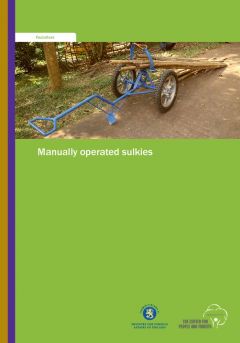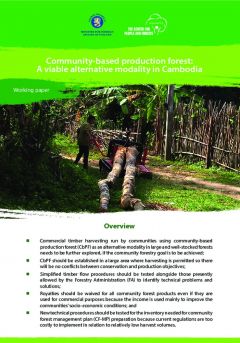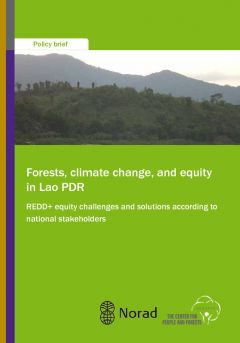Location
RECOFTC
RECOFTC is derived from an abbreviated form of the organization's legal name, Regional Community Forestry Training Center for Asia and the Pacific. Formerly the organization was known as RECOFTC – The Center for People and Forests.
RECOFTC – The Center for People and Forests is an international not-for-profit organization that focuses on capacity building for community forestry in the Asia Pacific region. It advocates for the increased involvement of local communities living in and around forests - some 450 million people in Asia-Pacific - in the equitable and ecologically sustainable management of forest landscapes.
The Regional Community Forestry Training Center for Asia and the Pacific (RECOFTC) opened in Bangkok, Thailand, in March 1987 with support from the United Nations Food and Agriculture Organization, the Government of Switzerland (through the Asian Development Bank), and Thailand's Kasetsart University.
Community forestry is widely acknowledged as a powerful solution for many of the challenges facing local people and the wider society, especially in improving rural livelihoods, enhancing community governance and empowerment, transforming forest-related conflict, protecting and enhancing the environment, and helping to fight climate change. As a capacity-building organisation, RECOFTC improves the ability of people and organisations to conduct community forestry effectively and sustainably.
RECOFTC works toward its mission through four thematic areas:
- expanding community forestry
- people, forests and climate change
- transforming forest conflict
- securing local livelihoods.
Members:
Resources
Displaying 136 - 140 of 485In the Hands of Local Communities: Annual Report 2014-2015
In 2014-15, RECOFTC demonstrated how community forestry in the Asia-Pacific region has great potential to be a pioneer in the drive to achieve the sustainable development goals (SDGs).
Manually Operated Sulkies
Two-wheeled manual sulkies were developed in the 1970s for use in the tropics by forest development projects of mainly Scandinavian countries. In its final development stage, a sulky with double bogie wheels was designed in 1985 in Finland and applied widely in east African countries and the Philippines under the FINNIDA APPRODEV project.
Community-based Production Forest: A Viable Alternative Modality in Cambodia
This brief summarizes the different approaches for the forest inventory needed for the community forestry management plan (CF-MP) were tested to compare their accuracy and efficiency. These approaches included: a) the official method envisioned in the national community forestry guidelines, b) a new type of plot layout called the K-tree method and c) the use of the diameter at breast height (DBH) to height relationship method.
Forests, Climate Change, and Equity in Lao PDR: REDD+ Equity Challenges and Solutions According to National Stakeholders
Equity has featured prominently in international climate change discourse since the establishment of the United Nations Framework Convention on Climate Change (UNFCCC) in 1992. Looking forward, equity is expected to be of even greater relevance in this year’s hoped for landmark climate agreement, to be finalized at the 21st Conference of the Parties (COP21) in Paris. Reducing Emissions from Deforestation and Forest Degradation (REDD+) remains central in global conversations at the intersection of forest and climate change policy.
Strengthening Sustainable Forest Management and Bioenergy Markets: Lessons Learned in Cambodia
This brief outlines the lessons learned from developing CF-MPs and business plans for 30 community forestry sites in Cambodia, trial of three Alternative CF Modalities (ACFMs): Community Conservation Forestry, Community-based Production Forestry and Partnership Forestry; and implementation of four Commune Land Use Plans (CLUPs). The project ‘Strengthening Sustainable Forest Management and Bioenergy Markets to Promote Environmental Sustainability and to Reduce Greenhouse Gas Emissions in Cambodia’ was implemented from April 2012 to February 2015, funded by UNDP-GEF.






